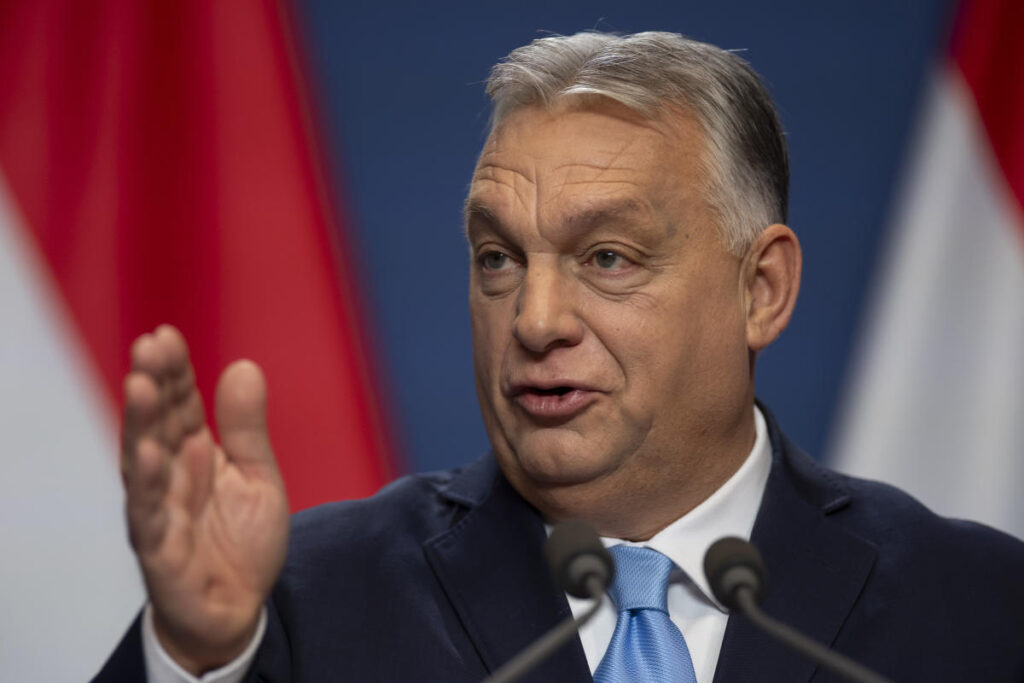In Budapest, Hungarian Prime Minister Viktor Orbán made headlines by linking immigration to a tragic attack that took place in Germany, where a man drove into a crowded Christmas market, resulting in multiple fatalities and injuries. This incident, deemed a “terrorist act,” occurred in Magdeburg, prompting expressions of sympathy from Orbán for the victims’ families. However, within the same context, he criticized the European Union’s migration policies, suggesting that these were enabling and exacerbating such violent events. Orbán has long criticized the EU’s liberal immigration approaches, framing the narrative in a way that aligns with his government’s hardline stance on immigration.
The attack has been attributed to a 50-year-old Saudi Arabian doctor who has lived in Germany since 2006. Authorities stated that he described himself as a former Muslim and frequently posted anti-Islamic sentiments on social media. His background and ongoing investigation have raised questions about the motivations behind his actions and further fueled the debate around Islam and immigration in Europe. Orbán’s assertions appear to capitalize on the fear surrounding such incidents, claiming without substantial evidence that the rise in attacks correlates directly with the spike in migration to Europe after 2015, a period which saw significant numbers fleeing conflict in the Middle East and North Africa.
Orbán’s position on migration is notably unyielding and reinforced by a broader historical context that he seems to overlook. Europe has been no stranger to militant attacks long before the 2015 migration surge; incidences like the Madrid train bombings and the London bombings in the early 2000s underscore that the connection between migration and terrorism is not as straightforward as he posits. Nevertheless, he maintained that the current EU leadership harbors intentions of forcing similar tragedies upon Hungary, suggesting that unchecked migration can lead to violence.
Since 2015, Orbán’s administration has implemented stringent measures against immigration. They have constructed formidable barriers along Hungary’s southern borders with neighboring countries, aiming to control the inflow of migrants. Such policies have placed Hungary at odds with EU asylum protocols, leading to legal consequences. Orbán’s government is facing a significant financial penalty issued by the European Court of Justice due to Hungary’s consistent disregard for EU asylum rules, further straining relations between Hungary and the EU. The monetary fines, accumulating daily, demonstrate Brussels’ frustration with Budapest’s approach.
Despite facing these legal pressures from the EU, Orbán shows little intent to modify Hungary’s strict immigration policies. He characterized his government’s stance as a fight against EU pressure to conform to what he perceives as harmful immigration standards. By positioning himself and his administration as defenders of national sovereignty against EU ‘imposition’, he resonates with nationalist sentiments within Hungary, gathering support from those wary of immigration and its implications.
As a right-wing populist leader amid an ongoing conflict over immigration policy within the EU, Orbán’s comments reflect a broader strategy to consolidate power by tapping into public fears regarding national security. By drawing a controversial connection between migration and terrorism, he reinforces the narrative that presents immigration as a threat to social stability. This highly charged rhetoric not only serves to rally his political base but also complicates Hungary’s relations with the EU and challenges the bloc’s communal policy-making in terms of migration and asylum seeking.

